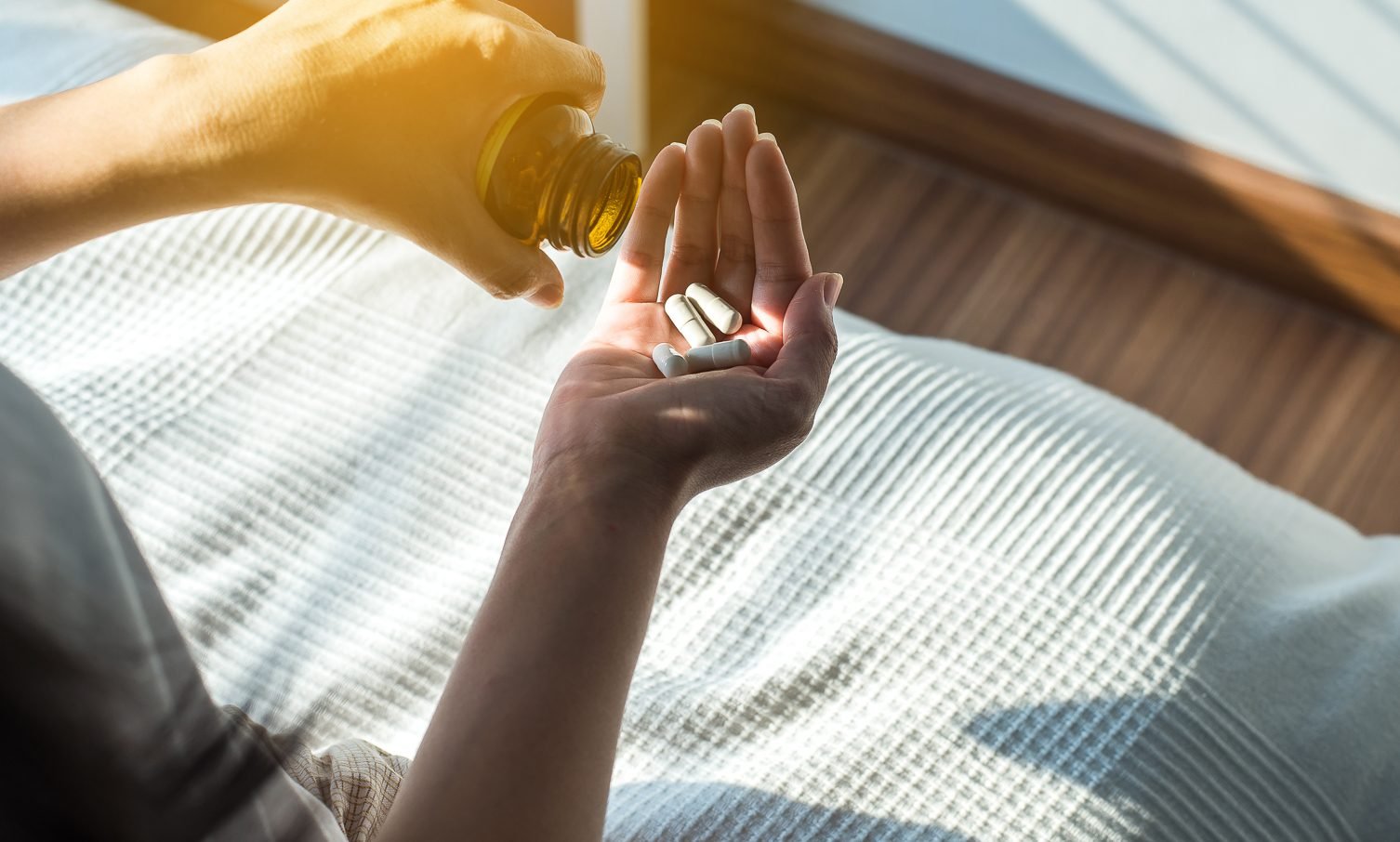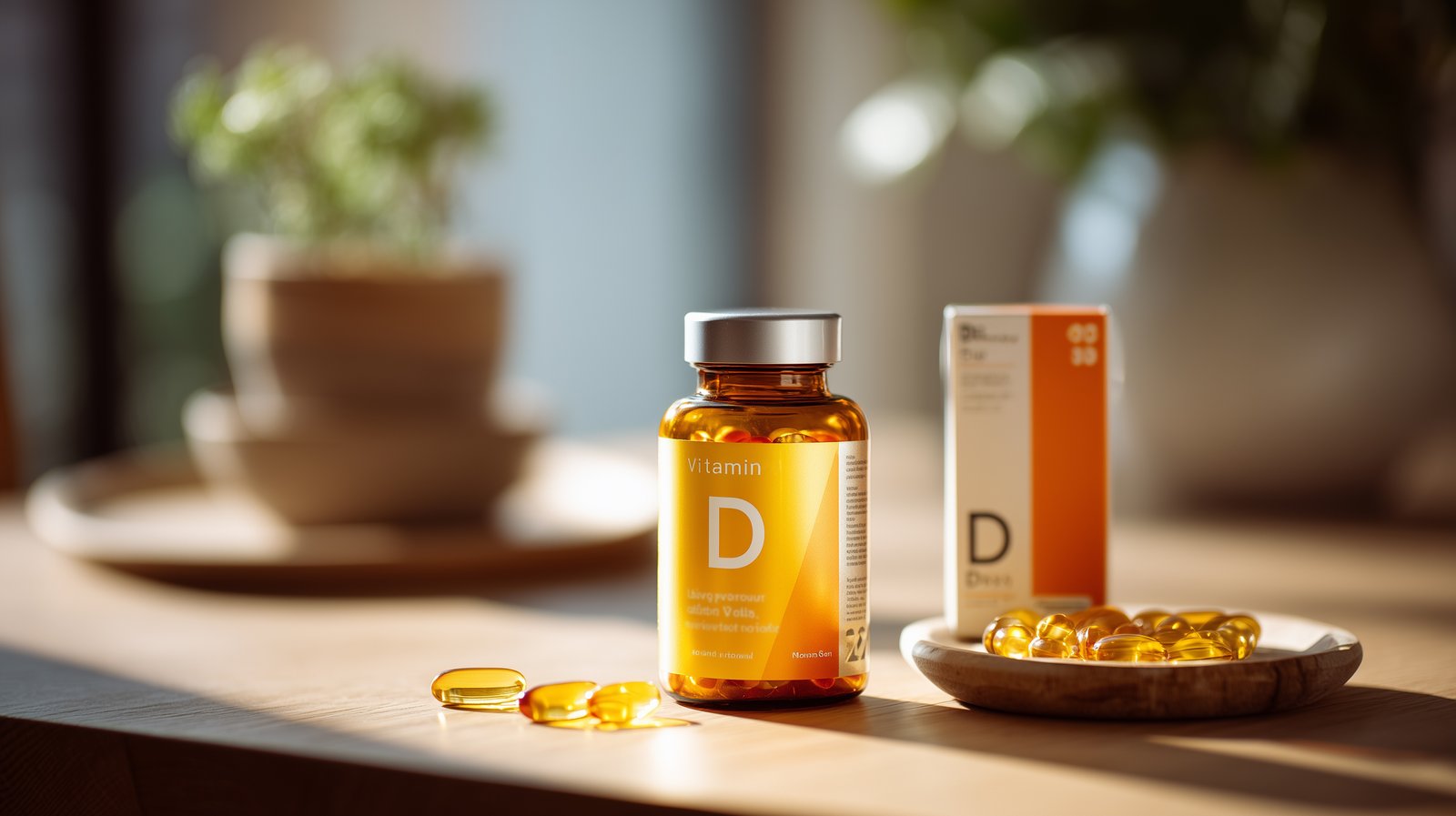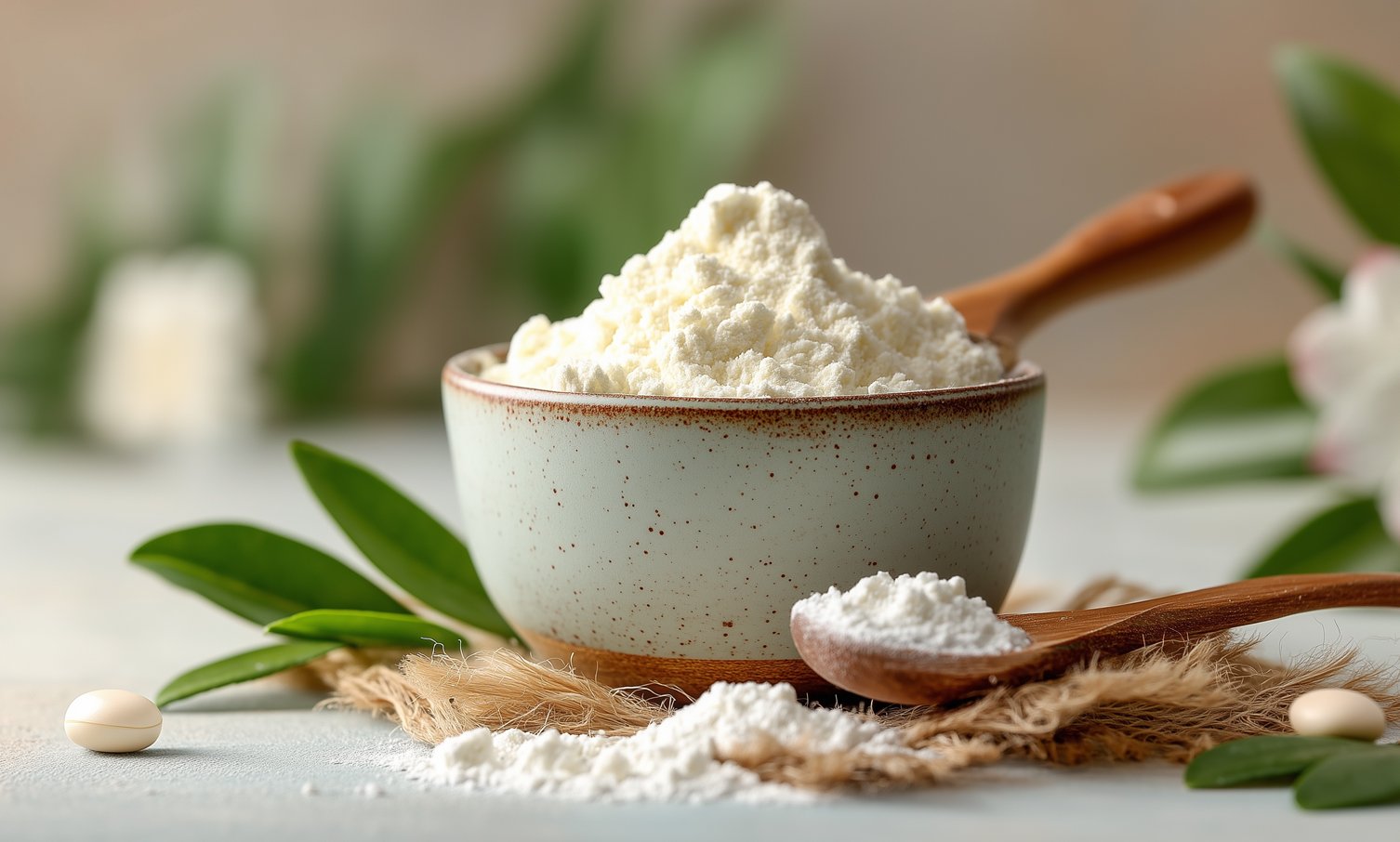Best Supplements for Menopause
Reading time 10 min

Reading time 10 min

If you’re going through perimenopause or menopause, you’ve likely heard that the supplements for menopause can ease fatigue, cramps, or hot flashes. But not all are created equal. What works for one woman might not help another. Let’s break down the essentials – safely, smartly, and with science on our side.
What are the best supplements for menopause?
The best supplements for menopause support bone health, energy, mood, and sleep. Top picks include Vitamin D, calcium, magnesium, omega-3s, and creatine. These are backed by science and most effective when chosen for quality, taken in the right doses, and paired with a healthy lifestyle.
The menopause transition is a time of significant change. Your hormones shift, your bones need more support, and your body’s ability to absorb certain nutrients, like calcium and magnesium, declines. Supplements can help fill these gaps and keep you healthy as you age. Beyond easing hot flashes and improving sleep, supplements might be able to support everything from bone density to brain function.
But here’s something you need to remember: more is not always better. Some supplements have risks if taken in high doses or for extended periods, and interactions with medications are also common. It’s essential to get the right dose, choose high-quality products, and always monitor how your body responds.

Not all supplements are created equal. Unlike prescription medications, supplements aren’t tightly regulated, so it’s crucial to choose high-quality products. Look for supplements that have been third-party tested by organizations like USP, NSF International, or ConsumerLab to ensure they contain the ingredients listed and are free from contaminants.
Avoid vague claims and “proprietary blends” that hide exact ingredient amounts, and always check the label for dosage, nutrient form, and potential allergens. Stick to reputable brands that follow good manufacturing practices (GMP-certified) and prioritize transparency. Finally, use trusted resources like the NIH Office of Dietary Supplements or ConsumerLab for research to help you make informed decisions. Quality matters – taking a poorly made supplement can be ineffective or even harmful1.
Not all supplements are worth your time or your money. But some can make a difference during the menopause transition, especially when it comes to bone health, mood, sleep, and energy. Here’s a closer look at the ones with real science behind them, how they work, and what to watch out for.

The human body contains about 25 g of magnesium, with about 50%–60% in the bone and the remainder in soft tissue. As we age, our bodies don’t absorb magnesium as efficiently, and to make matters worse, most women simply don’t get enough through diet or supplements15, 16.
Blood tests for omega-3 levels can help tailor supplementation. These tests measure the amount of omega-3 fatty acids, specifically EPA and DHA, in your red blood cell membranes, giving you a more accurate picture of your long-term intake. Ideally, your omega-3 index (the percentage of EPA and DHA in red blood cells) should be above 8% for optimal benefits. Levels below 4% may indicate a higher risk for cardiovascular disease22.
Creatine is the most researched supplement in the world, traditionally used by bodybuilders and athletes to boost strength and muscle mass. But recent research reveals it’s not just for gym-goers. Beyond enhancing physical performance, creatine might be able to support brain health and cognitive function, helping reduce mental fatigue, improve memory, and protect against age-related cognitive decline26.

DHEA was once promoted as an all-purpose anti-aging supplement. As the initial hype faded, DHEA became a controlled drug in most developed countries, requiring a prescription in Europe and Canada. In the U.S., it remains available over the counter, raising concerns about its safety and appropriate use.
It’s best to test your levels for key nutrients like Vitamin D, magnesium, and omega-3s to know what you need. For others, like collagen and creatine, you won’t find reliable tests – but you can experiment and see how you feel.
Personally, I take Magnesium, Vitamin D, Omega-3s, Creatine, and Collagen. These help me feel strong, energetic, and balanced. But everyone’s body is different. Take the time to figure out what works for you.
Supplements can support your health and ease the transition through menopause, but they’re not a replacement for a healthy lifestyle. Pair them with a balanced diet, regular movement, and good sleep.
And remember – when it comes to supplements, more is not always better. Be smart, stay curious, and listen to what your body needs.
Dr. Jūra Lašas
1.
National Institutes of health. https://ods.od.nih.gov/
2.
Bailey, R. et al. Calcium Supplement Use Is Associated With Less Bone Mineral Density Loss, But Does Not Lessen the Risk of Bone Fracture Across the Menopause Transition: Data From the Study of Women’s Health Across the Nation. (2020) https://doi.org/10.1002/jbm4.10246
3.
Reid, I. et al. Long-term effects of calcium supplementation on bone loss and fractures in postmenopausal women: A randomized controlled trial. (1995) https://doi.org/10.1016/S0002-9343(99)80310-6
4.
Wu, J. et al. Quantitative analysis of efficacy and associated factors of calcium intake on bone mineral density in postmenopausal women. (2017) https://doi.org/10.1007/s00198-017-3993-4
5.
Kwatra, B. et al. Clinical Applications and Properties of Calcium Citrate Malate. (2021) https://doi.org/10.47583/ijpsrr.2021.v69i01.009
6.
Liu, C. et al. Effects of combined calcium and vitamin D supplementation on osteoporosis in postmenopausal women: a systematic review and meta-analysis of randomized controlled trials. (2020) https://doi.org/10.1039/D0FO00787K
7.
Pérez-López, F. et al. Vitamin D supplementation after the menopause. (2020) https://doi.org/10.1177/2042018820931291
8.
Weaver, C. et al. Calcium plus vitamin D supplementation and risk of fractures: an updated meta-analysis from the National Osteoporosis Foundation. (2016) https://doi.org/10.1007/s00198-015-3386-5
9.
Gallagher, C. et al. Dose Response to Vitamin D Supplementation in Postmenopausal Women: A Randomized Trial. (2012) https://doi.org/10.7326/0003-4819-156-6-201203200-00005
10.
Malihi, Z. et al. Adverse events from large dose vitamin D supplementation taken for one year or longer. (2019) https://doi.org/10.1016/j.jsbmb.2018.12.002
11.
Henríquez, S. et al. Cholecalciferol or Calcifediol in the Management of Vitamin D Deficiency. (2020) https://doi.org/10.3390/nu12061617
12.
Barbagallo, M. et al. Magnesium in Aging, Health and Diseases. (2021) https://doi.org/10.3390/nu13020463
13.
MedlinePlus. Magnesium Citrate. https://medlineplus.gov/druginfo/meds/a619019.html#side-effects
14.
Kappeler, D. et al. Higher bioavailability of magnesium citrate as compared to magnesium oxide shown by evaluation of urinary excretion and serum levels after single-dose administration in a randomized cross-over study. (2017) https://doi.org/10.1186/s40795-016-0121-3
15.
Costello, R. et al. Chapter 21 – Magnesium. (2020) https://doi.org/10.1016/B978-0-323-66162-1.00021-4
16.
Barbagallo, M. et al. Magnesium in Aging, Health and Diseases. (2021) https://doi.org/10.3390/nu13020463
17.
Wall, R. et al. Fatty acids from fish: the anti-inflammatory potential of long-chain omega-3 fatty acids. (2010) https://doi.org/10.1111/j.1753-4887.2010.00287.x
18.
Iqbal, A. et al. Effects of Omega-3 Polyunsaturated Fatty Acids Intake on Vasomotor Symptoms, Sleep Quality and Depression in Postmenopausal Women: A Systematic Review. (2023) https://doi.org/10.3390/nu15194231
19.
Sparkes, C. et a. Effect of Low Dose Docosahexaenoic Acid-Rich Fish Oil on Plasma Lipids and Lipoproteins in Pre-Menopausal Women: A Dose–Response Randomized Placebo-Controlled Trial. (2018) https://doi.org/10.3390/nu10101460
20.
Villani, A. et al. Fish oil administration in older adults: is there potential for adverse events? (2013) https://doi.org/10.1186/1471-2318-13-41
21.
Bourdon, J. et al. Polychlorinated biphenyls (PCBs) contamination and aryl hydrocarbon receptor (AhR) agonist activity of Omega-3 polyunsaturated fatty acid supplements: Implications for daily intake of dioxins and PCBs. (2010) https://doi.org/10.1016/j.fct.2010.07.051
22.
Harris, W. The omega-3 index as a risk factor for coronary heart disease. (2008) https://doi.org/10.1093/ajcn/87.6.1997s
23.
Bonilla, D. et al. Metabolic Basis of Creatine in Health and Disease: A Bioinformatics-Assisted Review. (2021) https://doi.org/10.3390/nu13041238
24.
Ostojic, S. et al. Gastrointestinal Distress After Creatine Supplementation in Athletes: Are Side Effects Dose Dependent? (2008) https://doi.org/10.1080/15438620701693280
25.
Kreider, R. et al. Creatine in Health and Disease. (2021) https://doi.org/10.3390/nu13020447
26.
McMorris, T. et al. Creatine supplementation research fails to support the theoretical basis for an effect on cognition: Evidence from a systematic review. (2024) https://doi.org/10.1016/j.bbr.2024.114982
27.
Al-Atif, H. Collagen Supplements for Aging and Wrinkles: A Paradigm Shift in the Fields of Dermatology and Cosmetics. Dermatol Pract Concept. (2022) https://doi.org/10.5826/dpc.1201a18
28.
García-Coronado, J. et al. Effect of collagen supplementation on osteoarthritis symptoms: a meta-analysis of randomized placebo-controlled trials. (2019) https://doi.org/10.1007/s00264-018-4211-5
29.
Barati, M. et al. Collagen supplementation for skin health: A mechanistic systematic review. (2020) https://doi.org/10.1111/jocd.13435
30.
Hong H. et al. Preparation of low-molecular-weight, collagen hydrolysates (peptides): Current progress, challenges, and future perspectives. (2019) https://doi.org/10.1016/j.foodchem.2019.125222
31.
Thomas, A. et al. Effects of isoflavones and amino acid therapies for hot flashes and co-occurring symptoms during the menopausal transition and early postmenopause: A systematic review. (2014) https://doi.org/10.1016/j.maturitas.2014.05.007
32.
Sathyapalan, T. et al. The Effect of High Dose Isoflavone Supplementation on Serum Reverse T3 in Euthyroid Men With Type 2 Diabetes and Post-menopausal Women. (2018) https://doi.org/10.3389/fendo.2018.00698
33.
Bevilacqua, M. et al. Effect of a mixture of calcium, vitamin D, inulin and soy isoflavones on bone metabolism in postmenopausal women: a retrospective analysis. (2013) https://doi.org/10.1007/s40520-013-0093-y
34.
Scheffers, C. et al. Dehydroepiandrosterone for women in the peri- or postmenopausal phase. (2015) https://doi.org/10.1002/14651858.CD011066.pub2
35.
Barton, D. et al. Systemic and local effects of vaginal dehydroepiandrosterone (DHEA): NCCTG N10C1 (Alliance). (2018) https://doi.org/10.1007/s00520-017-3960-9
36.
Tang, J. et al. The Utilization of Dehydroepiandrosterone as a Sexual Hormone Precursor in Premenopausal and Postmenopausal Women: An Overview. (2022) https://doi.org/10.3390/ph15010046